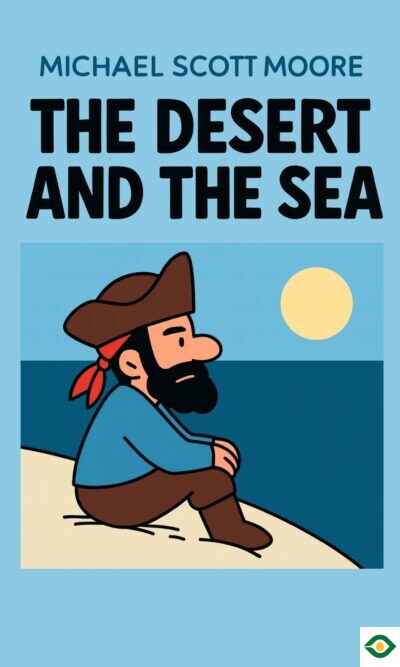Description
In March 2022, during the early days of the war in Ukraine, a group of journalists set out to report near the combat zone. What happened next would become an incredible story of survival, courage, and human determination. Out of the whole team, only one man would live through the terrifying attack. His name was Benjamin Hall, and this is his journey.
The group was traveling in a small car when the first bomb fell. It struck just ahead of them, sending shockwaves through the trees. The cameraman shouted for the driver to turn back, but before anyone could move, a second bomb exploded. The vehicle was ripped apart. In the silence that followed, Benjamin Hall drifted into a strange state of calm. He did not feel pain at first. Instead, he saw the figure of his young daughter urging him to get out of the car. Somehow, that vision gave him the strength to crawl out of the wreckage. Moments later, a third bomb exploded, but he had already pulled himself away.
His colleague Pierre was lying on the ground, badly wounded, and their situation was desperate. They were far from help, invisible from the road, and surrounded by danger. Benjamin, bleeding and barely conscious, knew he had to make himself seen. He dragged his broken body up the slope, hoping someone might notice him. Finally, after what felt like hours, he heard the sound of a car. With the last of his strength, he waved and called out. Someone pulled him up, and for the first time since the blast, he felt a surge of hope.
Benjamin’s memories after that are blurred. He remembers a van, then an ambulance, doctors working under dim lights, and fear that he had fallen into enemy hands. He thought the nurses could be spies. Only when an American voice asked his name did he begin to feel safe again. What he didn’t know was that while he fought to survive, people far away were already planning to save him.
Colleagues and friends quickly learned about the attack. They contacted governments, humanitarian groups, and specialists who knew how to extract people from war zones. Getting into Ukraine had been easy for journalists, but getting out after the fighting began was nearly impossible. Roads were blocked, trains were under attack, and checkpoints stood everywhere. For ordinary civilians, escape was painfully slow. For someone critically injured, it seemed almost hopeless.
But help was on its way. A rescue network was formed, led by people with military and medical experience. Among them was a skilled operative known as Seaspray, who had rescued many before. Alongside him was Dr. Rich Jadick, a combat doctor with years of experience treating wounded soldiers. Together, they set out with ambulances and a plan to get Benjamin to safety.
When they reached the hospital where he was being held, they walked straight in wearing medical uniforms. They spoke calmly, showed no aggression, and acted as if they belonged. That confidence got them through the doors and up to Benjamin’s room. Dr. Jadick spoke softly, asking if he wanted to leave. The mission had begun.
Benjamin was in critical condition. His right leg had already been amputated, his other leg was badly injured, his hand was shattered, one eye was destroyed, his skull was fractured, and he carried severe burns. Moving him at all was a huge risk, but staying in the hospital was even more dangerous. The building itself was a target, and the doctors knew they could not give him the care he needed.
The rescuers had to move fast. A diplomatic train was leaving Kyiv soon, carrying high-level officials back to Poland. That train would be the safest way out. But to reach it, they needed permission, and they had to get Benjamin through a city full of checkpoints during a strict curfew.
With support from colleagues abroad, permissions were granted at the last possible moment. The team loaded Benjamin into an ambulance and drove through Kyiv. At each checkpoint, they repeated simple words: “American, medical.” With smiles and calm behavior, they passed through. Against the odds, they reached the station, got Benjamin aboard the train, and began the journey to Poland.
During the train ride, Benjamin learned the devastating news: his colleagues Pierre and Sasha had not survived the blast. Grief mixed with relief as he realized he was alive, but the hardest part was still ahead.
In Poland, he was transferred to a military hospital, then flown to Germany for advanced care. Doctors there worked around the clock to stabilize him. They treated his burns, operated on his shattered bones, and removed his damaged eye. They worked to save his remaining leg, knowing that if successful, he might walk again one day with prosthetics. The danger of infection was high, and every day was a battle to keep him alive.
Finally, he was sent to the United States, to the Brooke Army Medical Center in Texas. This hospital specialized in the kind of long-term recovery he would need. Doctors estimated it would take at least two years of surgeries, skin grafts, therapy, and prosthetic training before he could return to a normal life. The road ahead was painful and uncertain.
But Benjamin was determined. He did not want to waste the second chance he had been given. He thought about the friends who had not survived, and he decided to honor them by fighting through recovery. Day by day, he pushed himself, meeting each challenge with courage. Against expectations, he left the hospital in just five months.
Looking back, Benjamin knew his survival was the result of many miracles. He had lived through the blasts. He had been rescued by strangers who risked their lives. He had been carried across a war-torn country, through endless checkpoints, onto a train, into hospitals, and across continents. At every step, there were people who refused to give up on him.
This story is not just about one man’s survival. It is about the strength of human will, the power of teamwork, and the courage of those who help others in the darkest times. It shows that even in war, compassion and determination can create hope. Benjamin Hall’s survival is a reminder that life can be rebuilt, even after unimaginable loss and pain.





